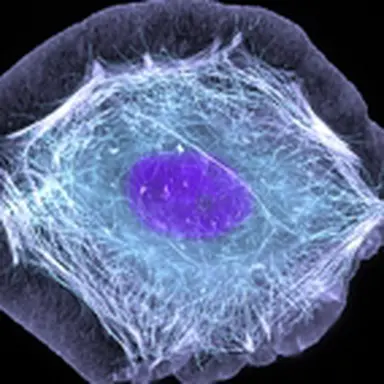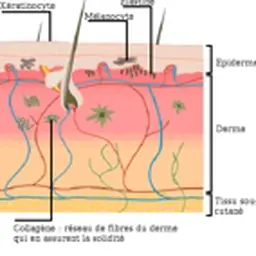
A keratinocyte is a cell which constitutes the external layer of the skin (epidermis). It is essential to the body: in addition to protecting it from external aggressions, it guarantees the impermeability of the body.
Keratinocytes are formed at the base of the epidermis, in the basement membrane. Before they join the stratum corneum, they go through several layers in the epidermis, which helps them synthesize keratin, a fibrous protein, as well as lipids, which make the skin impermeable. Then, their shape changes and they get longer.
Once they have penetrated the stratum corneum, they transform into corneocytes, dead cells filled with keratin, and surround themselves with a ‘coat of lipids’.
It takes them about a month in young individuals to renew themselves. Then, when we get fifty, we need almost 40 days.
They play an essential role in protecting the skin against UV rays. When the epidermis is exposed to the sun, keratinocytes send a message to melanocytes (the cells found in the base of the epidermis), so that they activate melanin production (melanin is a natural shield against UV rays).
Lastly, keratinocytes are involved in the skin’s sensoriality. They act as ‘sensorial detectors’ sensitive to smells, taste, sugars (thanks to lectins), and visible light.
JS












